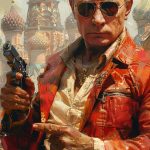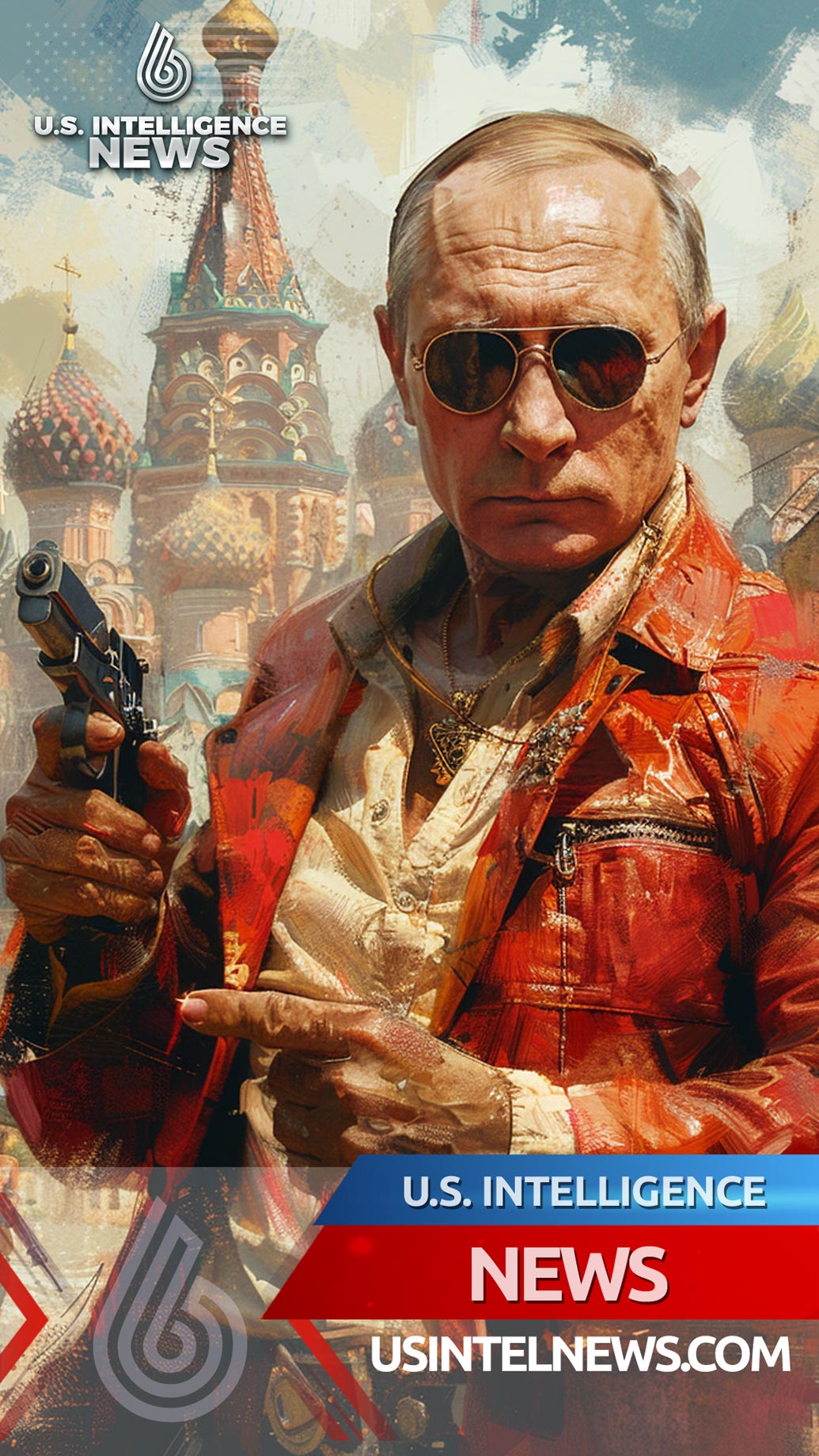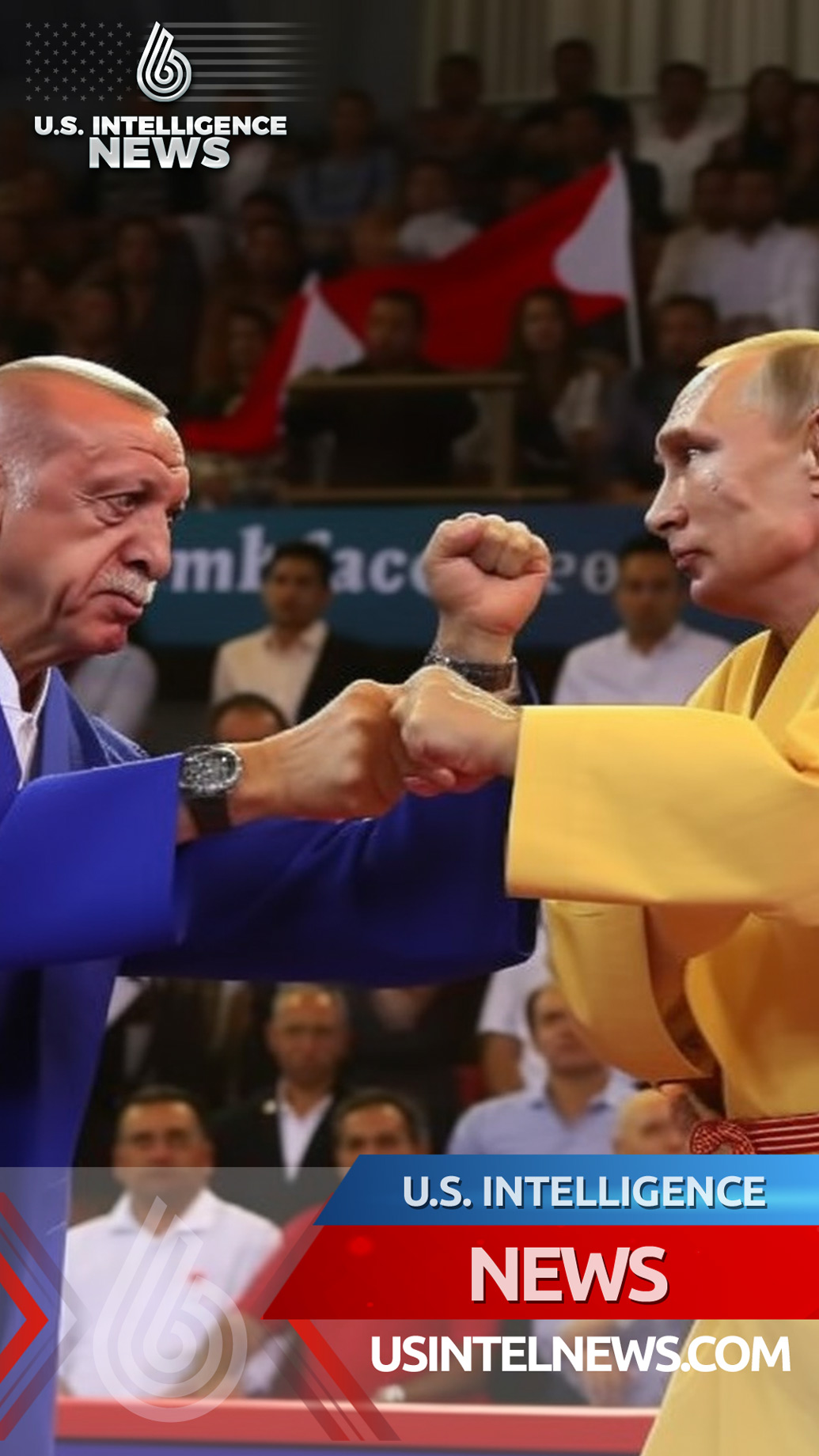
The U.S. Intelligence Community
Last Saturday, the day after Robert Mueller released the report detailing his team’s findings about whether the Trump campaign colluded with Russia, Saturday Night Live was wrapping up a three-week-long hiatus. There was no show, then, to offer immediate reaction to the completion of the years-in-the-making assessment from the special counsel.
The delay that resulted could’ve been a liability for a show premised on quick reactions to a dizzying news cycle; in this case, however, the schedule-enforced slowness was an asset. Quinta Jurecic noted this week in The Atlantic that the Mueller report and its aftermath can evoke the feeling of living in a state of suspended animation, with nothing fully decided or confirmed, despite the report’s official conclusion. SNL used its return to lean into the chaos and explore the consequences of that feeling—and to find humor in the ways the report has lived in American politics in the week since it was delivered to Congress. The episode was an uneven effort, but at its best it led to nuanced treatments of the Mueller report as a cultural phenomenon—aided by the fantastic guest host, Sandra Oh.
[youtube https://www.youtube.com/watch?v=O22U8JDxGuM]
The show’s cold open played pretty much as you’d expect: Robert De Niro reprised his role as a jaded and prosthetically square-jawed version of Robert Mueller; Alec Baldwin appeared once again as a simpering, pucker-mouthed Donald Trump; Aidy Bryant played William Barr, the newly appointed United States attorney general who, in his capacity as the nation’s top lawyer, last Sunday provided a four-page-long summary of Mueller’s 300-plus-page report. (That her characterization in this case was notably bland offered its own commentary on Barr as a public official.) SNL, making use of split screens, took aim at the absurdities of the report-condensation process itself—a game of telephone, the show suggested, only with the muddled messaging coming not as the result of accidental mishearings but rather of political strategy.
“I am submitting these 380 pages,” De Niro’s Mueller put it.
“I am writing almost four pages,” Barr translated.
“I am reading zero pages,” Trump declared, “but Sean Hannity has read it and he was so excited that he texted me an eggplant.”
The sketch went on like that: call-and-response-and-response, the (still unknown) substance of the original Mueller report getting lost in the fog of determined presidential triumphalism.
“On the charge of obstruction of justice,” Mueller said gravely, “we have not drawn a definitive conclusion.”
Barr: “But I have, and my conclusion is: Trump’s clean as a whistle!”
“Free at last, free at last!” the president echoed.
Mueller: “As for conspiracy or collusion, there were several questionable incidences involving the president’s team, but we cannot prove a criminal connection.”
“No collusion, no diggity, no doubt,” Barr summarized.
Trump, at this, blew an air horn in celebration.
Kate McKinnon’s ghoulishly rodentine rendition of Rudy Giuliani made an appearance in the sketch, too, the Trump lawyer unable to resist taking a gleeful victory lap. “I will take the firstborn child of every Democrat, unless they can guess that my name is Rumpelstiltskin,” this version of Giuliani said.
McKinnon’s arrival was a relief. The scene, like many of the show’s recent cold opens, dragged on far too long. But it did manage to capture a truth that was not clear immediately after Mueller delivered his report: The document’s findings, overall, are not yet known with any precision, and they might not be anytime soon. And yet they will be weaponized. “I’ve included hundreds of pages of evidence,” De Niro’s Mueller said sternly. “Most of it provided on live television by the president himself,” Bryant’s Barr added. Which the celebrity president, using the language of an awards show, summed up like so: “Russia, if you’re watching, go to bed. Daddy won!”
The idea was further explored in a later sketch, this one detailing Russia’s own reaction to the Mueller findings. Beck Bennett reprised his role as Vladimir Putin, surrounded by deputies in an elaborately decorated conference room, as the underlings tried to process the idea that per the Mueller report, the American president had not colluded with the Kremlin.
“This—this cannot be, can it, sir? American president is work for Russia. Right?” one staffer asked, confused and crestfallen.
Another: “We look forward to report so much! You know, it was going to be Mueller Time, baby! All the world would see the power of Russia, and we were so excited!”
Another: “I was planning a party.”
[Read: Americans can’t stop mythologizing Robert Mueller]
The joke ostensibly poked fun at Russia, but it came in fact at the expense of those who had spent the past many months convinced that Mueller’s report would find the Trump campaign guilty of collusion. Soon, Kim Jong Un (played by Bowen Yang, a staff writer on the show) appeared with an interpreter (Oh). The North Korean leader was questioning Putin’s influence over the American presidency, and Putin was attempting to assure him that he still had a troll army and so many more means of meddling—and, Putin noted, “We don’t know everything in the report yet. Plus, Mueller handed off a lot of stuff to the Southern District of New York. That’s where the real action is.”
To which Kim’s interpreter replied, “Glorious Leader says you sound like Rachel Maddow right now.”
There was more in this vein, as SNL reckoned with a report that is completed but not conclusive—and as the show explored what it feels like to live within the politics of suspended animation. The “Weekend Update” hosts Michael Che and Colin Jost compared the report to the Jussie Smollett case and to Duke’s recent men’s-basketball win. (“All the people I was told were bad guys all got away with it!” Jost said.) Cecily Strong reprised her impersonation of Jeanine Pirro, the Fox News host who is just returning to the network after a weeks-long reported suspension for Islamophobic comments she made about Representative Ilhan Omar of Minnesota. “After this Mueller report, we in Trump Nation can do anything we want!” Strong’s version of the TV personality said joyfully.
The scene was a noted contrast to Jost’s introduction to this particular “Weekend Update”—and to the tone of an episode that mourned as it mocked. (All the people I was told were bad guys all got away with it.) As Jost put it ruefully, acknowledging all that had happened—and all that had not—in the days since Mueller delivered his report to Congress: “Well, this week made me feel insane.”


 Scandal Surrounding Samuel Abu Jinapor: His Role in the Sale of Prestea Bogoso Mine and the Case for Transparency
Scandal Surrounding Samuel Abu Jinapor: His Role in the Sale of Prestea Bogoso Mine and the Case for Transparency  Breaking News: Kremlin Warns of ‘World War III’ Amid Escalating US-Russia Tensions
Breaking News: Kremlin Warns of ‘World War III’ Amid Escalating US-Russia Tensions  Russia Refocuses on Hybrid Operations in Moldova, Armenia, Georgia, and Baltic States
Russia Refocuses on Hybrid Operations in Moldova, Armenia, Georgia, and Baltic States  Bitcoin and Tether Self-Destruct: How Ethicoin is Redefining the Future of Ethical Finance
Bitcoin and Tether Self-Destruct: How Ethicoin is Redefining the Future of Ethical Finance 


